Filter by
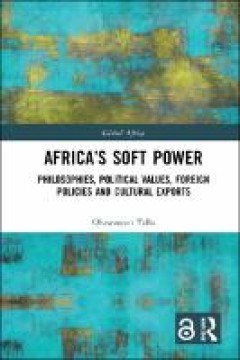
Africa's soft power : philosophies, political values, foreign policies and cu…
This book investigates the ways in which soft power is used by African countries to help drive global influence. Selecting four of the countries most associated with soft power across the continent, this book delves into the currencies of soft power across the region: from South Africa’s progressive constitution and expanding multinational corporations, to Nigeria’s Nollywood film industry …
- Edition
- -
- ISBN/ISSN
- 9781000402179
- Collation
- ix. :ill. ;266 p.
- Series Title
- -
- Call Number
- 327.96 OLU a
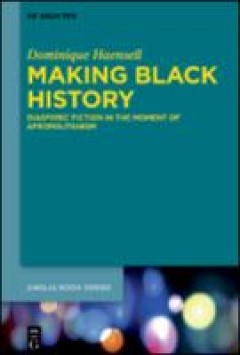
Making Black history : diasporic fiction in the moment of afropolitanism
This study proposes that Afropolitanism may be best approached as a distinct cultural moment or historical constellation that allows us to glimpse the shifting and multiple silhouettes which Africa – as signifier, as real and imagined locus – embodies in the globalized cultural landscape of the 21st century. As such, Making Black History looks at contemporary diasporic fictions that have be…
- Edition
- -
- ISBN/ISSN
- 9783110722093
- Collation
- vii, 254 p. : ill.
- Series Title
- -
- Call Number
- 420 HAE m
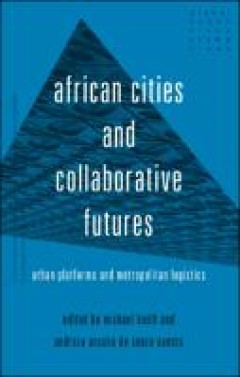
African cities and collaborative futures : urban platforms and metropolitan l…
African cities and collaborative futures: Urban platforms and metropolitan logistics brings together scholars from across the globe to discuss the nature of African cities – the interactions of residents with infrastructure, energy, housing, safety and sustainability, seen through local narratives and theories. This groundbreaking collection, drawing on a variety of fields and extensive first…
- Edition
- -
- ISBN/ISSN
- 9781526155351
- Collation
- xvi, 190 p. : ill
- Series Title
- -
- Call Number
- 307.76096 KEI a
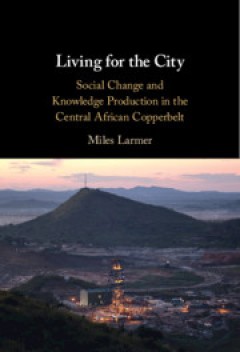
Living for the city : social change and knowledge production in the Central A…
Living for the City is a social history of the Central African Copperbelt, considered as a single region encompassing the neighbouring mining regions of Zambia and the Democratic Republic of Congo. The Haut Katanga and Zambian Copperbelt mine towns have been understood as the vanguard of urban 'modernity' in Africa. Observers found in these towns new African communities that were experiencing w…
- Edition
- -
- ISBN/ISSN
- 9781108973120
- Collation
- xiii, 380 p. : ill
- Series Title
- -
- Call Number
- 967 LAR l
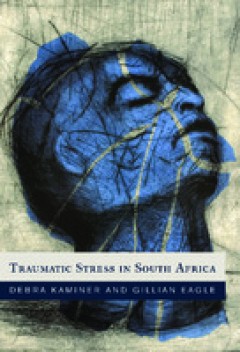
Traumatic stress in South Africa
Taking both a historical and contemporary perspective, the book covers the extent of and manner in which traumatic stress manifests, including the way in which exposure to such extremely threatening events impacts on people’s meaning and belief systems. Therapeutic and community strategies for addressing and healing the effects of trauma exposure are comprehensively covered, as well as the pa…
- Edition
- -
- ISBN/ISSN
- 9781868146826
- Collation
- x, 222p.
- Series Title
- -
- Call Number
- 616.852106 KAM t
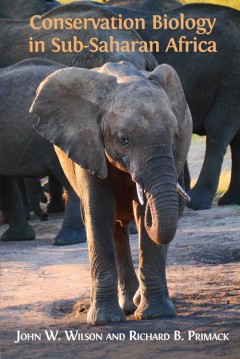
Conservation biology in Sub-Saharan Africa
Conservation Biology in Sub-Saharan Africa comprehensively explores the challenges and potential solutions to key conservation issues in Sub-Saharan Africa. Easy to read, this lucid and accessible textbook includes fifteen chapters that cover a full range of conservation topics, including threats to biodiversity, environmental laws, and protected areas management, as well as related topics s…
- Edition
- -
- ISBN/ISSN
- 9781783747528
- Collation
- 694 p. : ill.
- Series Title
- -
- Call Number
- 334 WIL c
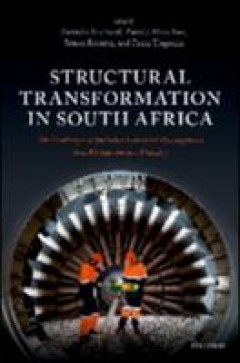
Structural transformation in South Africa : the challenges of inclusive indus…
Taking South Africa as an important case study of the challenges of structural transformation, the book offers a new micro-meso level framework and evidence linking country-specific and global dynamics of change, with a focus on the current challenges and opportunities faced by middle-income countries. Detailed analyses of industry groupings and interests in South Africa reveal the complex set …
- Edition
- -
- ISBN/ISSN
- 9780192894311
- Collation
- xxvii, 382 p.; ill
- Series Title
- -
- Call Number
- 338.968 STR s
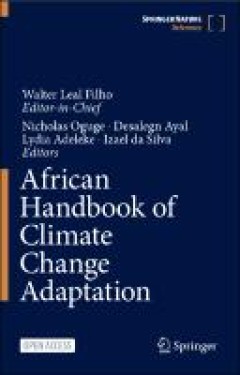
African handbook of climate change adaptation
This open access book discusses current thinking and presents the main issues and challenges associated with climate change in Africa. It introduces evidences from studies and projects which show how climate change adaptation is being - and may continue to be successfully implemented in African countries. Thanks to its scope and wide range of themes surrounding climate change, the ambition is t…
- Edition
- -
- ISBN/ISSN
- 9783030451066
- Collation
- Iix, 2838 p.; ill
- Series Title
- -
- Call Number
- 577.27 AFR a

The state of peacebuilding in Africa : lessons learned for policymakers and p…
This open access book on the state of peacebuilding in Africa brings together the work of distinguished scholars, practitioners, and decision makers to reflect on key experiences and lessons learned in peacebuilding in Africa over the past half century. The core themes addressed by the contributors include conflict prevention, mediation, and management; post-conflict reconstruction, justice and…
- Edition
- -
- ISBN/ISSN
- 9783030466350
- Collation
- xix, 431 p.; ill
- Series Title
- -
- Call Number
- 327.172096 THE t
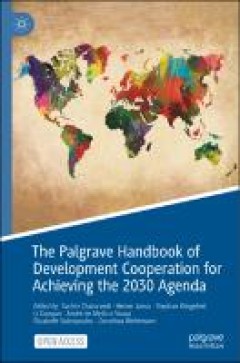
The palgrave handbook of development cooperation for achieving the 2030 agend…
This open access handbook analyses the role of development cooperation in achieving the 2030 Agenda in a global context of ‘contested cooperation’. Development actors, including governments providing aid or South-South Cooperation, developing countries, and non-governmental actors (civil society, philanthropy, and businesses) constantly challenge underlying narratives and norms of developme…
- Edition
- -
- ISBN/ISSN
- 9783030579371
- Collation
- xxxii, 730 p.; ill
- Series Title
- -
- Call Number
- 338.927 CHA t
 Computer Science, Information & General Works
Computer Science, Information & General Works  Philosophy & Psychology
Philosophy & Psychology  Religion
Religion  Social Sciences
Social Sciences  Language
Language  Pure Science
Pure Science  Applied Sciences
Applied Sciences  Art & Recreation
Art & Recreation  Literature
Literature  History & Geography
History & Geography